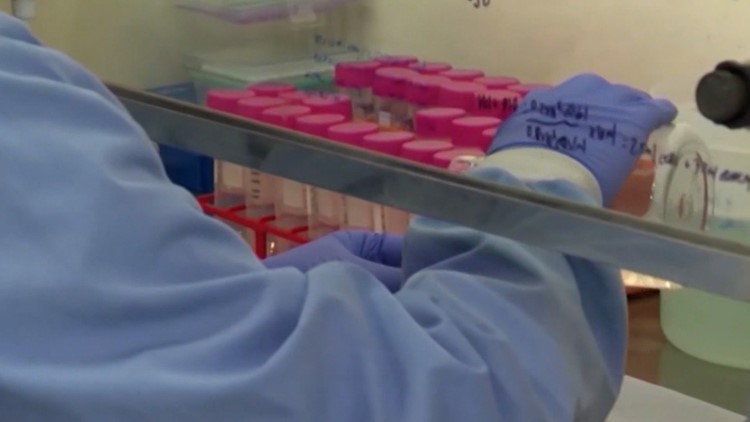HUNTSVILLE, Ala. —
"This is not a competition against a vaccine, it comes in addition to [the vaccine.] Vaccination works, but sometimes you [can] still get the disease, like the flu for instance," said Dr. Jerome Baudry, PhD, Endowed Chan Chair and professor in the Biological Sciences Department at the University of Alabama in Huntsville.
Vaccines do work, but maybe not for everyone, every time. Having another form of treatment is important, especially now.
"Coming [out] with a pharmaceutical [drug] is a very long and painstaking process, it takes well over ten years normally. We don't have that luxury [this] time, so we have to accelerate the process greatly. The way we have done that is to use very powerful computers, among the most powerful computers on earth," said Baudry.
So, how did these computers do this?
"[The computers are] screening virtually a lot of chemicals that are found in plants and sometimes animals, or fungi, what we call natural products because they are already existing in nature," said Baudry.
Because the research was done using a computer instead of a lab, information was found in two months, much quicker than the normal three years it usually takes.
But why use natural chemicals?
"They have biological and chemical properties that make them more likely to be useful drugs, '[rather] than something that would come out of the lab, entirely from scratch. So the reason we're going after natural products is [because] they are primed for success and they already exist out there," said Baudry.
So, what's the next step you may ask? Well, the 35 naturally occurring compounds found to be capable of fighting COVID-19 will be sent to the University of Tennessee's Health Science Center in Memphis.
"They are about to actually confirm, or prove us wrong, we don't know - that those chemicals will have an effect against the virus. They are actually scheduled to be screened next week and if they see that the virus cannot infect the cells anymore, then it means the chemical is a success," said Baudry.
And after that...
"Depending on how it looks in test tubes, or I should say petri dishes, they may also want to test those chemicals in mice, in animal models, that would [take the experiment to the next level.] It's a long way from being efficient in humans but it's a necessary step," said Baudry.
RELATED: Huntsville Hospital on rising COVID-19 cases, potential staffing issues as holidays approach



